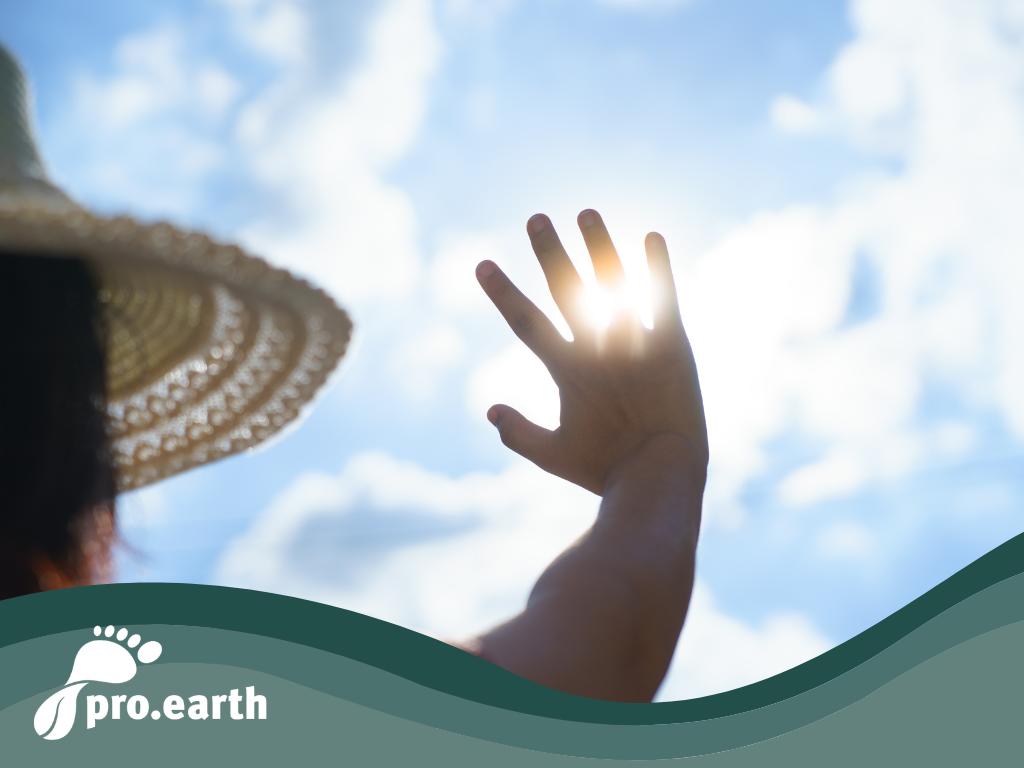The heat and us

It has been extremely hot for days. And even the nights sometimes don't cool down properly. This puts a lot of strain on the human body. Young children, older people and pregnant women are particularly affected.
We sleep worse, some suffer from dizziness, concentration problems, it can even lead to heat stroke, heart attacks and strokes. The heat is particularly intense in large cities.
There are already some offers such as cooling centers, and visiting climate oases in cooler courtyards or in churches that are cool due to their thick walls are also ways of providing relief - but that is by no means all.
What heat does to our bodies
As our body tries to keep its temperature constant at around 37°C regardless of the outside temperature in order to keep vital metabolic processes running, heat is hard work for it.
If the body temperature rises too much, the body's own proteins break down.
This is why the body ramps up its cooling systems when it is hot: the blood vessels dilate and increase their surface area in order to release as much heat as possible. Water from the blood is pumped out of the body via the sweat glands and we sweat. The evaporation of sweat from our skin cools our body down. Sweating is therefore our most effective mechanism for preventing overheating.
However, the dilation of the blood vessels causes our blood pressure to drop. This is a real challenge for the cardiovascular system. The heart has to pump faster to compensate.
Increased blood flow to the skin means that the internal organs are supplied with smaller amounts of blood, which can result in a decrease in physical performance. We therefore feel tired and exhausted more quickly.
What to do in hot weather?
As sweating on hot days causes the body to become dehydrated in the first place, all experts advise sufficient fluid intake - preferably water, unsweetened teas, ayran (yogurt, soda, salt), etc.
Drinks containing alcohol are not recommended, as they put a strain on the body and can cause it to collapse even more quickly.
Furthermore, if symptoms such as dizziness, headache, drowsiness or excessive weakness are present, seek cooling - but not too abruptly, as this can also be dangerous.
It is therefore strongly advised not to jump into the cool water if you are overheated. It can lead to seizures or even a heart attack.
To protect the body from overheating, it is also advisable to keep a cool head. Whether it's a hat, a shady spot or moisturizing your hair - there are no limits to your imagination.
Working in the heat
Employers must ensure that indoor climatic conditions prevail in workspaces that are appropriate for the human organism.
There are also guide values for workspaces:
- Low physical stress: 19 to 25 degrees
- Normal load: 18 to 24 degrees
- high physical exertion (which mostly happens outdoors): The temperature must not fall below 12 degrees
But there are also limit values for the maximum permitted air speed, i.e. the ventilation itself.
Working outdoors
Recently, the Bau-Holz trade union (GBH) once again called for a "legally binding heat regulation", as the current one is not binding. It stipulates that employers can give their employees on construction sites time off due to heat, provided that the Geosphere Austria measuring point closest to the construction site has reached 32.5 degrees Celsius - but without any legal entitlement.
The demand by public health officers for employees to take a siesta is a topic of discussion in Germany.
pro.earth conclusion
It is important not to take the heat and its effects on the entire body lightly in times of latent extreme temperatures. Take care of yourselves! 💚






